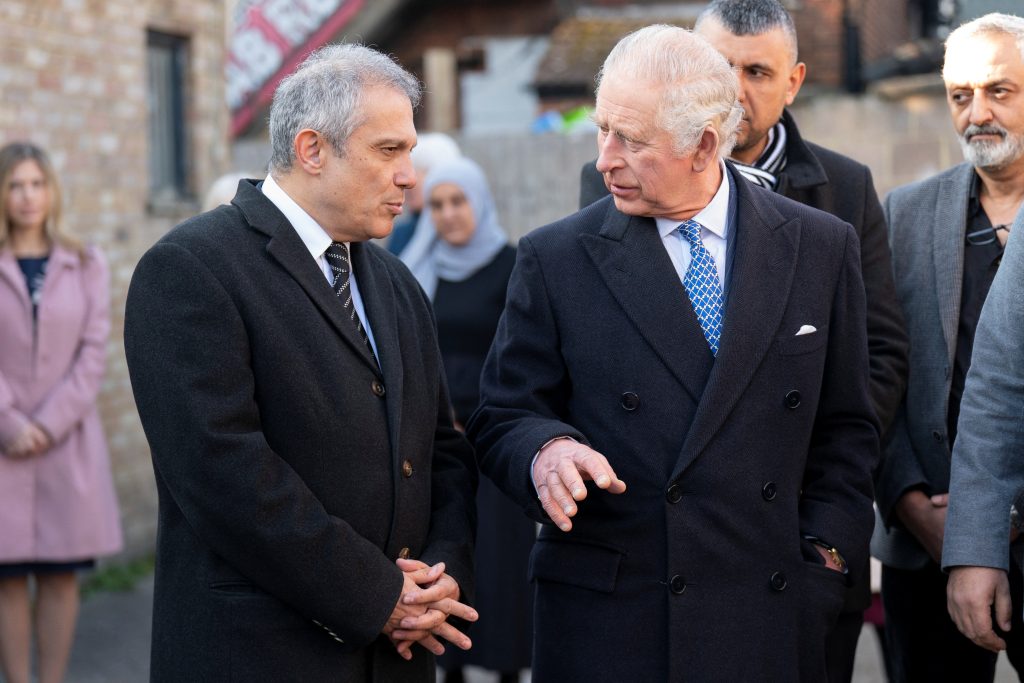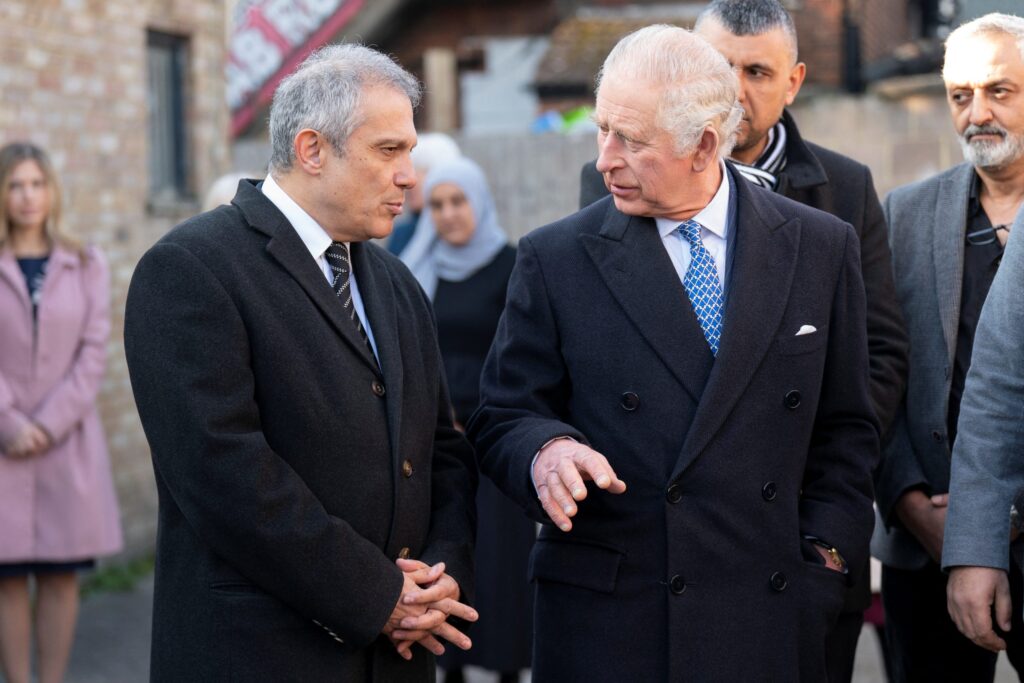
Britain’s exit from the European Union (EU) has changed the way the country interacts with the rest of the world. In many ways, this has served as a catalyst to deepen bilateral relations with Turkey, especially trade and economic cooperation with Ankara.
The UK recognizes Turkey as a market of interest and an essential partner as it seeks new opportunities to diversify its trading relationship post-Brexit. Most recently, following the re-election of Turkish President Recep Tayyip Erdoğan in May, British Prime Minister Rishi Sunak tweeted: write he”[looks] “We look forward to continuing the strong partnership between the UK and Turkey, from increasing trade to tackling security threats as NATO allies.”
The two countries have begun efforts to further strengthen their partnership, including beginning renegotiations of the existing UK-Turkey Free Trade Agreement, but this strengthening of the partnership also spans several areas beyond trade, including investment, immigration policy and defense cooperation, and builds on the strategic partnership outlined by the UK government in 2010.
trade
As part of its strategy to diversify its trading partners, the UK has particularly sought markets outside the EU and has attracted Turkey as a target market. As well as providing the UK with access to its own market, Turkey also acts as a gateway to other dynamic markets in Eastern Europe and the Middle East in which the UK has further strategic interests.
After leaving the EU, Turkey and the UK signed their first free trade agreement, which entered into force on January 1, 2021. The agreement aimed to maintain preferential trade relations (instead of the EU-Turkey customs union) and to strengthen future bilateral relations. trade relations. Over time, trade between the UK and Turkey has increased, with total trade between March 2022 and March 2023 reaching £23.8 billion, an increase of more than 20% year-on-year when adjusting for price changes.
The decision announced on July 18 to renegotiate the existing agreement came after a review found several areas for improvement, particularly in the services, data and digital sectors. . The latest deal to reduce trade barriers and tariffs could further deepen economic ties and wider cooperation between the UK and Turkey.
However, this effort to strengthen the UK-Turkey partnership will take time, and implementation will be complex as negotiating a new free trade agreement could take years. It will also require a willingness on both sides to compromise and find common ground. So far, both the UK and Turkey seem ready to engage accordingly. Also, even if there is a change of government in the UK, it is unlikely to affect the free trade negotiations or the overall trajectory of the bilateral relationship.
Migration, Security, and Stability
In addition to expanding trade ties, the UK and Turkey are also strengthening their geopolitical partnership. The two countries cooperate on various diplomatic fronts and hold dialogues on regional stability, particularly issues related to Iraq and Syria, and counter-terrorism.
The UK and Turkey have demonstrated strong bilateral cooperation on humanitarian and migration issues, most recently in the relief efforts following the earthquake earlier this year. The refugee crisis resulting from the Syrian conflict has had a significant impact on both countries in the form of rising migration numbers. Ankara and London have worked together to find ways to manage and address these issues and mitigate the risks associated with the crisis, including domestic security concerns, strain on national resources and social integration challenges.
Non-Syrian immigration, particularly smuggling and illegal immigration, has been a priority area for the UK since leaving the EU, leading to the passage of the Illegal Immigration Act 2023. Turkey, which has the world’s largest refugee population, is a strategic partner for the UK in managing immigration-related issues. The UK government recently signed a deal with Turkey to crush human smuggling rings and tackle illegal immigration. The intention to sign an agreement that addresses issues that both countries are committed to confronting is a sign of strengthening ties between the two countries. According to the UK government, the partnership will involve Turkish “centres of excellence” and will, among other things, enhance information sharing between enforcement agencies. This builds on existing partnerships, with the Home Office last year providing more than £3m of funding to Turkish Border Force to help cut off common routes for migrants to reach the UK.
investment and defense
Britain is embarking on new investment ventures as it seeks to diversify its portfolio of projects and partners after leaving the EU. Earlier in July, the British government announced it would pledge £680 million in loan guarantees for Turkey’s new high-speed electric rail line, which will link several major cities along a low-carbon route. The plan is to link Mersin, Adana, Osmaniye and Gaziantep, the last three of which were badly damaged in an earthquake earlier this year.
Defense cooperation is also contributing to deepening bilateral relations between the UK and Turkey. The two countries engage in training and capacity-building initiatives, joint military operations, and defense-related trade and technology exchanges, with British defense industries signing a range of contracts with their Turkish counterparts in recent years. Turkey has been importing British arms for several years (with the exception of a temporary suspension of new export licenses for arms sales to Turkey in late 2019 due to Turkey’s military activities in Syria. Licenses will be extended until 2021) ). Last year, the UK Defense Secretary met with his Turkish counterpart and insisted the two countries share a long-term defense partnership based on enhanced cooperation.
However, tensions arise when the UK and Turkey have different strategic and foreign policy priorities, for example in the case of Syria. Additionally, Turkey’s decision to purchase the Russian S-400 missile defense system in 2019 raised concerns about confidence in the partnership due to potential security risks associated with compatibility issues with NATO defense systems. occurred. Conflicting security concerns, particularly related to Turkey’s involvement throughout the Middle East and Eastern Mediterranean, also complicate Ankara and London at times.
Still, ties between Britain and Turkey are growing stronger, and it’s not just about trade. The two countries are working together to tackle deep-rooted issues such as illegal immigration and smuggling, particularly in relation to tougher immigration policies post-Brexit. And as global risks continue to evolve, defense cooperation is also evolving, where the strategic and security concerns of both countries are closely aligned. If the UK and Turkey follow the same trajectory, their relationship will become even stronger.
Ilayda Nijhar is a Global Risk Analyst at ODI and a London Labor Councilor. Follow her on Twitter @ilaydanijhar.
The views expressed in this piece are those of the author alone.
References
Pictured: King Charles III, received by Turkish Ambassador to the UK Umit Yalçin, meets members of the Turkish diaspora community who are organising the collection, packing and transport of food, blankets and warm clothing for those affected by the recent earthquake in Turkey during a visit by West London Turkish Volunteers in Hounslow, Tuesday 14 February 2023. Kirsty O’Connor/Pool via Reuters


